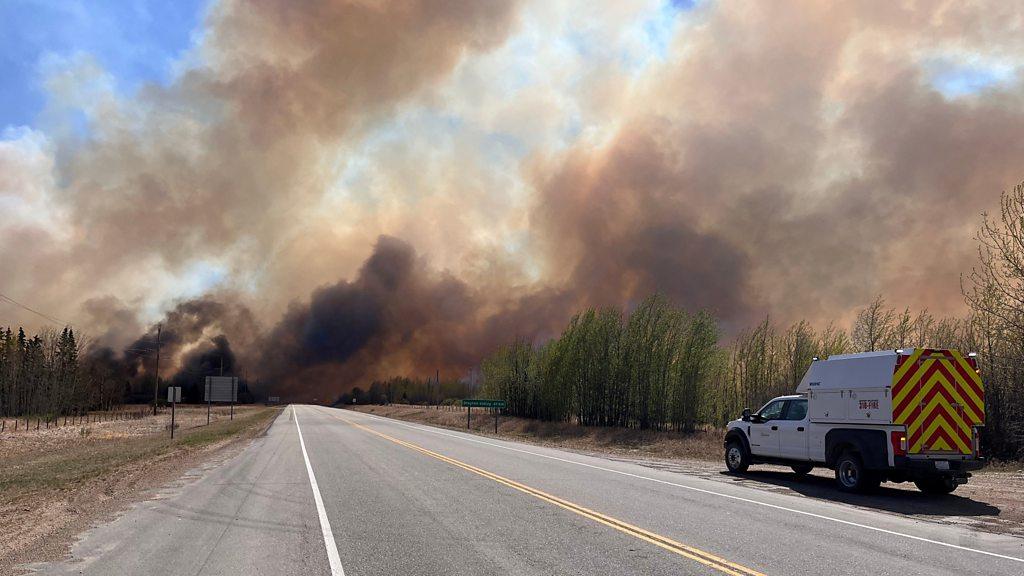Wildfire smoke from Alberta and British Columbia reaches US
- Published
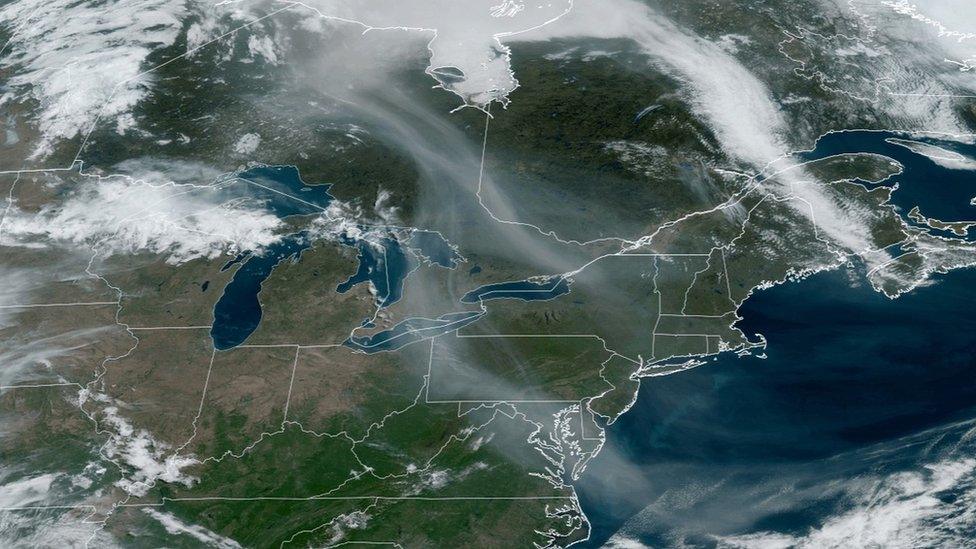
Images from the National Oceanic and Atmospheric Administration show the smoke from the Alberta wildfires
Much of Canada and parts of the US are blanketed by smoke as wildfires in the province of Alberta continue to rage.
As of Thursday, there are 75 active wildfires in Alberta, 23 of which are considered out of control.
Early May is typically the start of wildfire season in the region, but experts have said that this level activity is unusual.
Temperatures are expected to rise sharply in the coming days, fuelling concern of more fires to come.
Images taken by the US National Oceanic and Atmospheric Administration (NOAA) show the smoke from the Alberta wildfires has travelled far to the eastern portion of Canada, reaching Quebec and Ontario down to the US-Canada border.
"Canada's wildfire season is off to an unusually active start," NOAA said on Twitter on Thursday.
NOAA's fire and smoke map showed much of Canada covered in light to medium smoke, external as of Thursday evening. The map also shows light smoke hanging over much of the US northeast and mid-Atlantic regions.
In the Washington DC area, the National Weather Service said, external Thursday's bright orange sunset was caused by "smoke from the Canadian wildfires [that] remains suspended in the upper atmosphere".
As the fires in Alberta continue to burn, 300 members of the Canadian military are being deployed to help local firefighters put out the flames on the ground and by air, officials said.
The military will also aid with community evacuations. Nearly 30,000 people have been forced out of their homes since the fires began a week ago.
Officials said that 28 schools remain closed due to the fires, affecting more than 6,000 students.
Watch: Alberta residents flee wildfires with newborn
"I recognise that this continues to be an extremely stressful time for many Albertans," said Mike Ellis, Alberta's minister of emergency preparedness, at a news conference on Thursday.
Mr Ellis said while temperatures in the province have cooled in recent days, the region is slated for an "above normal" hot and dry weekend that raises the threat of more fires.
The western Canada province saw 427 fires so far this year that burned through 410,000 hectares - nearly double the five-year average of hectares burned in an entire season.
Nearby British Columbia (BC) and Saskatchewan have also seen fires and evacuations in recent days.
Like Alberta, BC is also slated for an unusually hot few days from Friday to Tuesday, raising concerns about both wildfires and floods from snowmelts. Temperatures are expected to hit 30C (86F) on Monday near Fort St John, a town near the BC-Alberta border, where a wildfire is burning nearby.
Experts say that while wildfires can be sparked by direct human involvement, natural factors can also play a huge part.
The cycle of extreme and long-lasting heat caused by climate change draws more and more moisture out of the ground and vegetation. The world has already warmed by about 1.2C since the industrial era began.
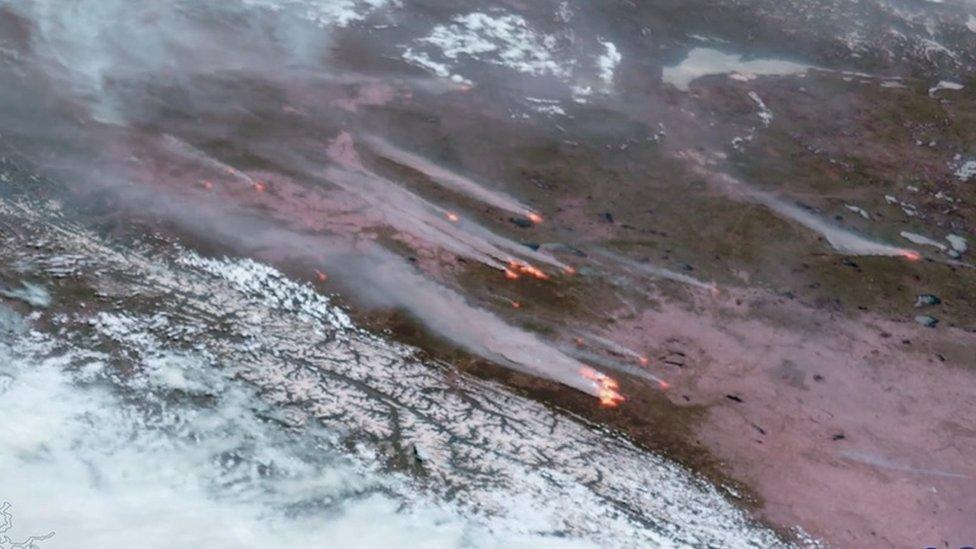
There are 75 active wildfires in Alberta as of Thursday evening, 23 of which are considered out of control
Related topics
- Published9 May 2023
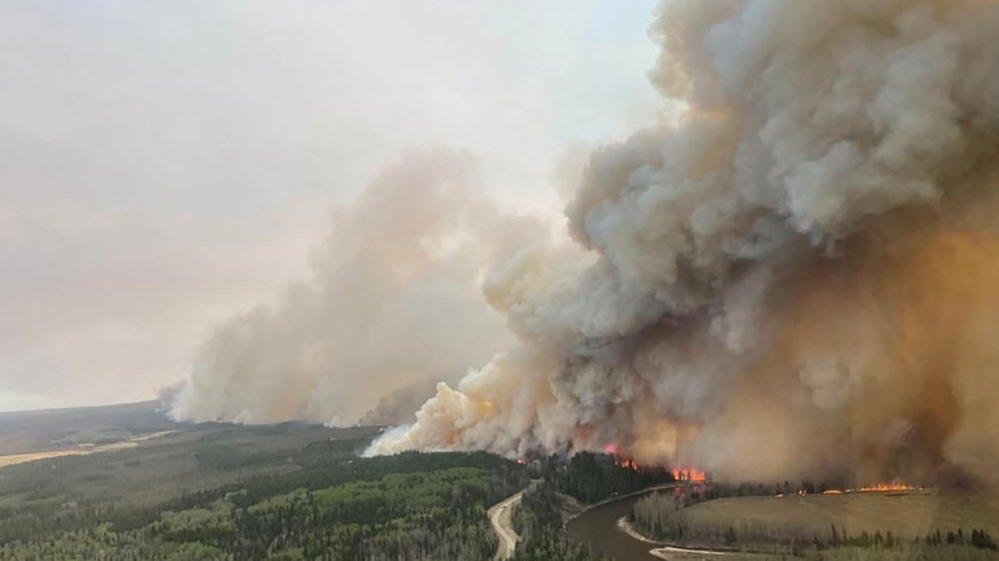
- Published7 May 2023
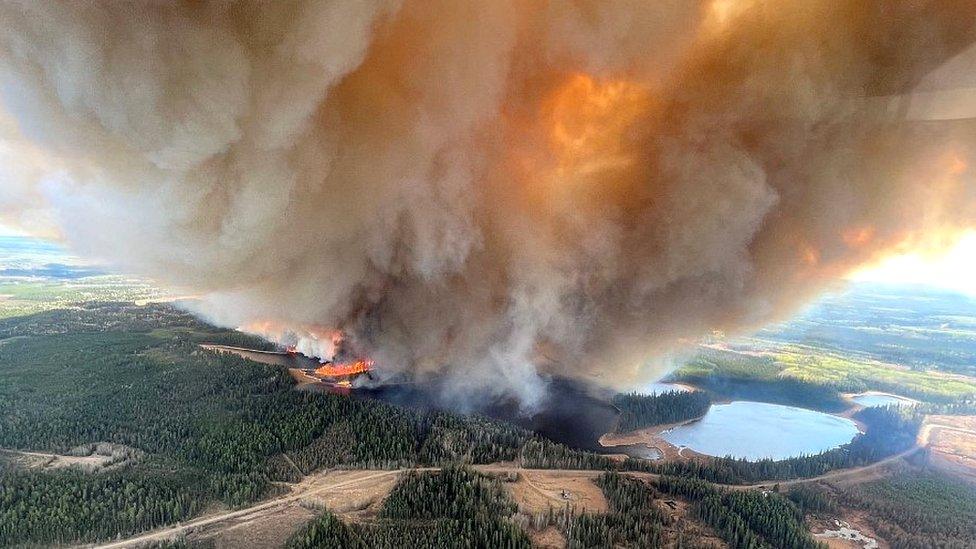
- Published8 May 2023
